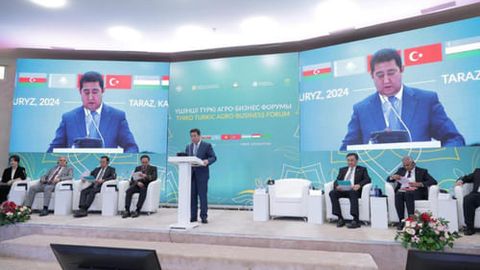Uzbekistan builds 50-hectare residential complex in Surkhandarya to support regional development
12:00 / 27.02.2026
Uzbekistan plans Single Tax Account to streamline tax payments
11:00 / 27.02.2026
President of Uzbekistan urges development of tropical fruit and citrus cultivation in Surkhandarya
10:00 / 27.02.2026
Uzbekistan presents $7.1bn investment projects in Surkhandarya to boost exports and create 18,000 jobs
09:00 / 27.02.2026
Kazakhstan president emphasizes development of mass and professional sports as national policy priority
22:45 / 26.02.2026
Recommendations
Menu
Good news:
Tags
Grow your business with us
Advertise on Daryo.uzIndividual approach and exclusive materials
Ad-free site readingSubscribe
25 000 sum per month






Comments
To leave a comment, first